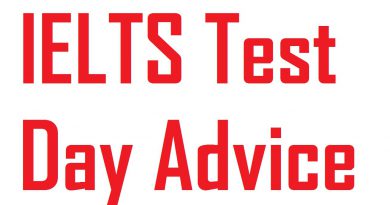Revaluation Criteria For IELTS
Most students who are not satisfied with their IELTS results face common dilemma of whether or not they should opt for reassessing. In general, there is very little official guidance about IELTS remarking scheme. If you are confident that you deserve a better score, you can apply for an Enquiry on your Results.
Process of revaluation of IELTS Exam:
- It is officially called Enquiry on IELTS Results where you must apply within six weeks of your original result date.
- Fee of revaluation is roughly half of the normal IELTS fee.
- Your test will be sent to Cambridge or Melbourne and be assessed by a senior examiner. Your previous IELTS result will not be disclosed to them.
- You can either choose individually of the four sections (listening, speaking, reading and writing) or all of them to be examined.
- This whole trial takes around six to eight weeks during which you cannot use your original test report to apply for a university or be sent to immigration office.
- IELTS Revaluation fee is fully refunded in case of any changes in band score.
- You will receive a letter via email confirming your final scores.
IELTS do not publish any statistics on what percentage of remarks are successful and every case is different, therefore, it is very difficult to determine if you should get a remark or not. However, there are some factors that you should consider below.
Join Best IELTS coaching
The cases when you should opt for Revaluation of IELTS Exam:
- You have been tested by an experienced IELTS examiner/ teacher and your scores have been consistently higher. However, you should make sure that the person assessing your work actually knows how to assess your ability. If you totally trust your teacher, then this is probably a good reason to get a remark, but remember that not all IELTS teachers know how to accurately assess IELTS tests.
- You’ve done the test before and your scores were significantly higher. If you have done the test before and your latest test is showing that you are a whole band or more lower, you should probably prefer choosing an IELTS remarking. If it has been more than a year since your last test, it might be that your English skills have just got worse.
- You believe that you have done everything correctly and you were fully prepared. If you are confident that the test went well, you should probably get a remark. However, you should only believe this if you really know the test and you have used a reliable teacher to help you. Many students think they did very well, when in fact they simply don’t have enough knowledge of how the test is marked or have been misinformed by other people.
IELTS Band Score and Marking Criteria
When you should avoid Remarking of IELTS Exam:

- If one of your other skills is two whole bands higher, you will get an automatic remark in your local test center. This means that an examiner and a senior examiner have already assessed your test and it is unlikely that a third examiner will have a different opinion.
- If you did not understand the question in Writing for either Task 1 or Task 2 particularly difficult, then you have probably not answered the question correctly and you will be penalised heavily for this.
- You did not reach the word limit in Writing, you are likely to lose lots of marks. Rechecking of IELTS exam here would be fruitless. Secrets to score high in IELTS writing?
- You keep getting the same score again and again, indicates that you need to improve your IELTS skills, your knowledge of the test, your general level of English or all three before you can get a higher score.
- Your friend/relative/colleague got a higher score than you, this is a surprisingly common reason. Just because someone you know got a higher score than you and you think you are either the same or better than them, does not mean that your score is wrong. It probably just means that you and the person you know are not actually on the same level or they simply did better on the day of the test.
- When you need an improvement of more than half a band, Examiners can sometimes make mistakes, but it is unlikely that they have made a mistake of more than half a band overall.
- Remarking your listening or reading questions since these are either right or wrong, so getting them remarked is futile.




